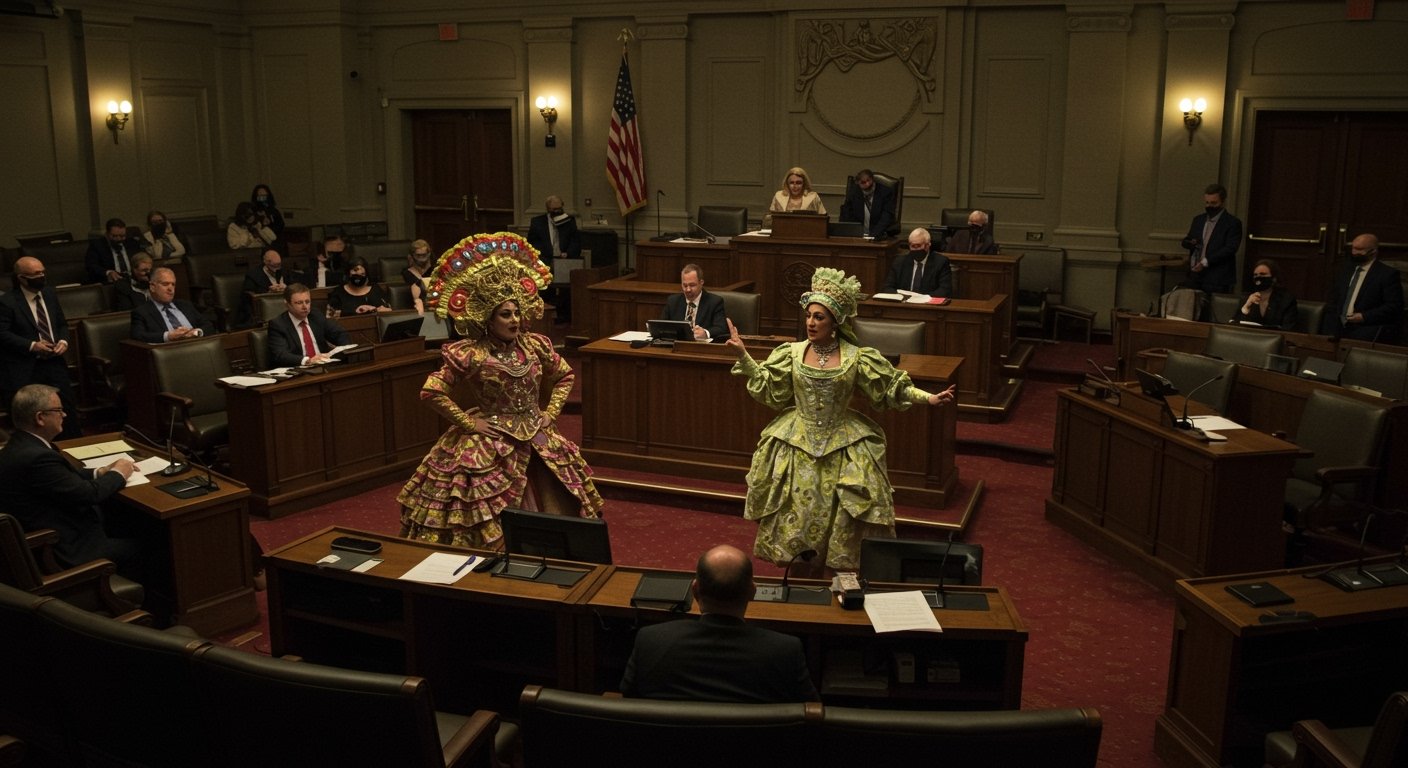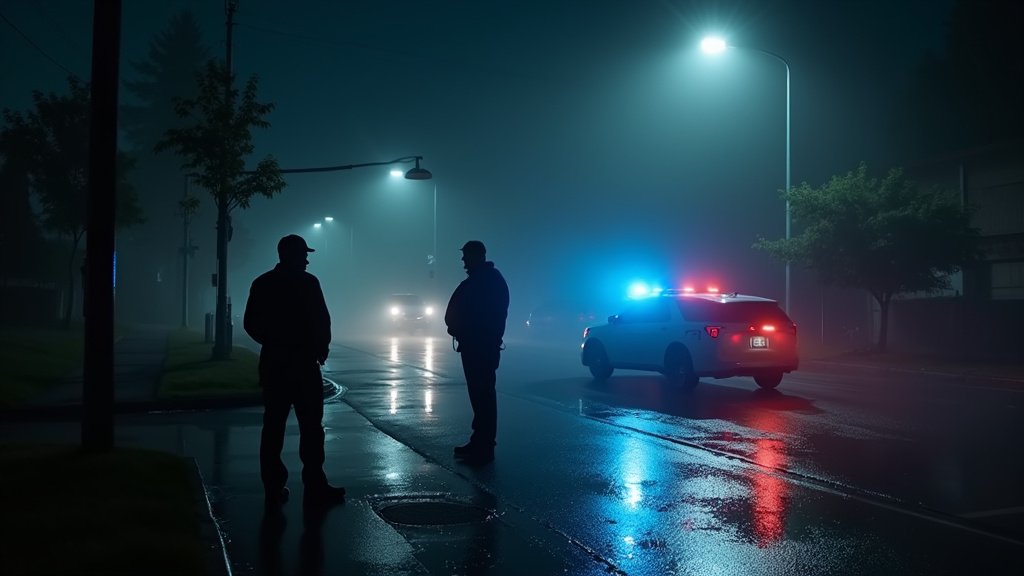SALEM, Oregon – In a significant legislative action acknowledging the rich cultural contributions of a historically vibrant community, the Oregon House of Representatives formally adopted House Resolution 3 on Wednesday, June 19, 2025. The measure, which specifically honors Oregon’s deep and impactful history of Black drag performers, passed with a decisive vote of 34-9.
The passage of House Resolution 3 marks an official recognition by the state legislature of the pivotal role Black drag artists have played in shaping Oregon’s cultural landscape for decades. The resolution, championed by Portland Democratic Representatives Travis Nelson and Shannon Isadore, was introduced to bring visibility and commendation to performers whose artistry and activism have often been overlooked or marginalized.
Decades of Influence Recognized
A central component of House Resolution 3 is an extensive four-page list meticulously detailing Black drag artists who have contributed to and shaped the community in Oregon since 1958. This compilation serves as a historical document, formally archiving and celebrating the legacies of individuals whose creative expression has fostered community, challenged norms, and provided vital spaces for self-expression.
The timeline starting from 1958 underscores the long-standing presence and influence of Black drag culture in the state, highlighting its enduring resilience and evolution across generations. The resolution’s explicit focus on Black performers acknowledges the unique experiences, challenges, and contributions within the broader drag community, particularly in the context of intersecting racial and LGBTQ+ identities.
Acknowledging Viral Moments and Lasting Legacies
The resolution also specifically references key moments that have brought wider attention to the artistry of Black drag performers in Oregon. Among these is the acknowledgment of a performance by Henry Felton, known by his stage name Kimber K. Shade, alongside Kimberly Westwood.
Their performance, held at a Portland nightclub in 2010, captured the public’s imagination and achieved significant online visibility. The video of the performance notably went viral on platforms like Youtube, garnering over 100,000 views. This digital moment is cited within the resolution as an example of the reach and impact Oregon’s Black drag artists have had, transcending local stages to gain broader recognition.
This specific inclusion underscores how contemporary digital visibility connects to and amplifies a longer, richer history of performance and community building that the resolution seeks to honor comprehensively through its four-page roster.
Timing Amidst Cultural Celebrations
The timing of the resolution’s adoption holds particular symbolic weight. The vote occurred during Pride month, a global period dedicated to celebrating LGBTQ+ communities and advocating for their rights. Passing a measure honoring drag history during this time reinforces the integral connection between drag culture and the broader fight for LGBTQ+ visibility and acceptance.
Furthermore, the resolution passed on the eve of Juneteenth, the federal holiday commemorating the emancipation of enslaved African Americans. This confluence of dates – Pride month and the eve of Juneteenth – highlights the intersectional identities of Black drag performers and the unique historical and cultural space they occupy at the crossroads of Black history and LGBTQ+ history.
Legislators and advocates noted that passing the resolution at this specific moment amplified its message of recognition and celebration for a community embodying resilience across multiple dimensions of identity.
Legislative Session Reflects Cultural Significance
The importance of the resolution was underscored by the atmosphere within the Oregon House chamber on the day of the vote. The session included a special opening performance by acclaimed drag performers Aqua Flora and Isaiah Esquire. Their presence and artistry on the legislative floor served as a powerful visual representation of the culture and individuals the resolution sought to honor, bringing the vibrancy of drag performance directly into the heart of state governance.
The decision to feature a live performance before legislative proceedings commenced was a notable departure from typical House sessions and signaled the significance attributed to the resolution by its supporters and House leadership. It allowed lawmakers and observers to witness firsthand the talent and presence of artists central to Oregon’s cultural fabric.
Vote Details and Political Divisions
The final vote tally of 34-9 demonstrates strong bipartisan support for the resolution among the majority, though it also revealed a notable division within the chamber. While a significant majority of representatives voted in favor of formally honoring Black drag history, the nine opposing votes highlighted areas of dissent.
Reports from the session indicated that most Republican representatives reportedly chose to skip the opening performance by Aqua Flora and Isaiah Esquire. This absence extended to the subsequent vote on House Resolution 3, with several Republican members not participating in the tally. Rep Dwayne Yunker, a Republican from Grants Pass, was specifically noted among those who reportedly did not engage with the performance or the vote.
This reported withdrawal by a segment of the Republican caucus during both the performance and the vote underscores the existing political tensions surrounding the recognition and celebration of drag culture and LGBTQ+ issues in legislative spaces, even when framed within a historical context.
Looking Forward
The adoption of House Resolution 3 is seen by proponents as more than just a symbolic gesture. By officially chronicling and honoring the history of Black drag performers in Oregon, the state legislature has provided a foundation for future educational initiatives and cultural preservation efforts. The four-page list serves as a crucial resource for documenting this history, ensuring it is not lost to time.
Advocates for the resolution expressed hope that this official recognition will foster greater understanding, respect, and appreciation for the enduring contributions of Black drag artists to Oregon’s identity and cultural vitality, paving the way for continued celebration and support for the community.




